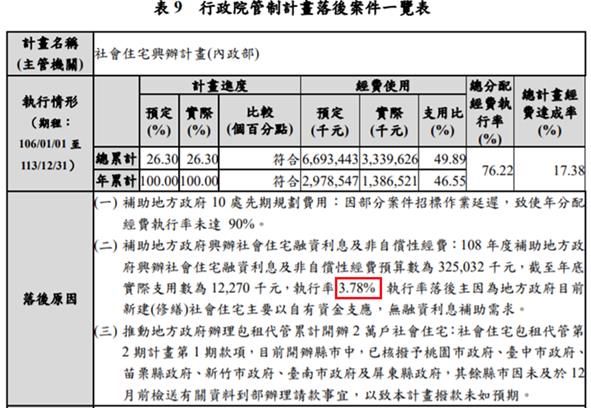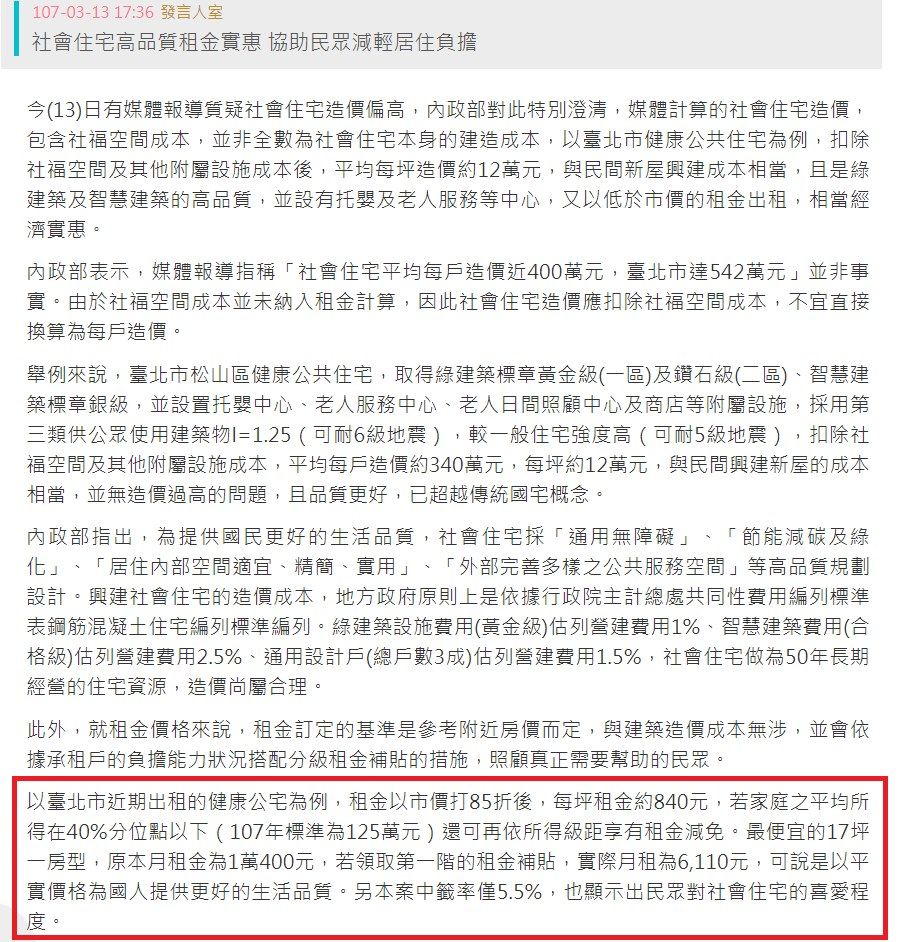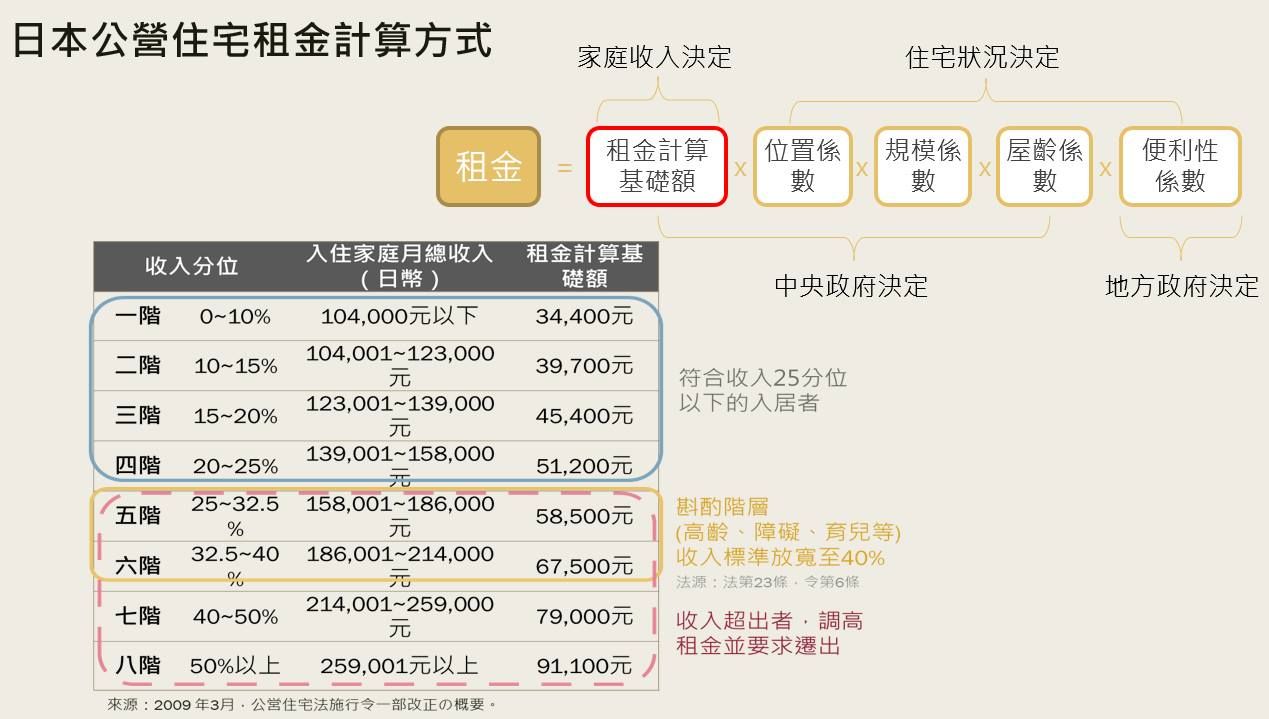The three social house lies of the Ministry of the Interior: Please solve practical problems well!
Last week, the Ministry of the Interior had something to say about the recent controversy over the system of social housing in Taipei, through press releases and public statements. I can directly and responsibly say that there are many outrageous lies.
Home Office 12/08 Press Release: https://reurl.cc/Z7KzM3
Home Office 12/10 Press Release: https://reurl.cc/j5zOOM
The reason why I use such strong words is because I am really outraged and disappointed that the country's top housing authority is making these statements. To be honest, since the establishment of social housing requires cooperation between the central and local governments, it is normal for unexpected problems to arise in actual operation.
But when you encounter problems, you should think about how to solve them. Especially if the cost and pricing issues involve central regulations, it will be difficult for local governments to overcome them. What the central government should provide is assistance and solution. This is the overall view that the central government should have. , rather than get down on the ground and even lie.
Criticism has to be based, and then I will talk about what the Home Office said is wrong.
[Social housing does not need to pay housing tax and land value tax, or can the local government reduce or exempt it by itself? 】
First of all, social housing is subject to housing tax and land value tax.
Article 20 of the "Land Tax Law" stipulates that public land can only be "exempt from land value tax" if it is "used for public use", but social housing is for the use of specific occupants, which does not meet this requirement; and Article 14 of the "Housing Tax Ordinance" There are also items listed as "exemption from housing tax for public housing", and social housing is not included.
In fact, it is because the social housing has to pay these two taxes, so Article 22 of the Housing Law stipulates that the two taxes can be reduced or exempted, and the time limit is specified.
Note that there is a clear time limit, the time limit is "five years, which may be extended once". Taipei City's self-government regulations want to reduce or exempt this tax, of course, it cannot exceed the central parent law, so Taipei City can only ignore the tax for ten years at most. Otherwise, should the Ministry of the Interior ask the Ministry of Finance, "Can the local tax autonomy regulations exceed the central regulations?"
Of course, 80% of the central government's thinking is, "Anyway, when the time is up, I will revise and extend the law." In fact, most laws are like this.
But local governments must be conservative when setting their finances. How could they listen to your central government's guarantee that "We will definitely repair it in the ninth year of Anla" and not make financial considerations? To put it bluntly, you still don't know where you will be in nine years.
This is the part that the central government should deal with but not recognize. Whether it is by amending the Land Tax Law and the Housing Tax Regulations, or by unpacking the Taxpayer Rights Protection Act, the problem can be solved.
[There is no requirement for 100% self-payment of social housing. If there is a gap, the central government will subsidize it? 】
This point is half right, the central government does not require social housing to be 100% self-paying. But on the other hand, the so-called subsidy is almost impossible to get, so if you don't pay yourself, you will wait for the loss to be turned over.
According to the "Guidelines for the Application of Subsidy for Financing Interest and Non-self-paying Funds of the Social Housing Project of the Ministry of the Interior", there are two prerequisites for the local government to receive the subsidy:
1. The rent should not be too cheap. The lower limit is 30% off the market price (including vulnerable households). If the local government wants to charge its own rent too cheap to be a good person, the central government will not pay the bill.
2. The rent should not be too expensive. If the monthly rent per ping exceeds 510 yuan, the central government thinks that you should have paid so much for yourself and will not pay the bill.
Therefore, for the area where the market rent exceeds 729 yuan per ping, it will be like this:
1. The rent cannot be charged at 30% lower than the market, so at least 510 yuan per ping.
2. You have already charged 510 yuan per ping? It should be self-paying without subsidy.
And how much is the market monthly rent per ping in Taipei City? According to the statistics of housing ratio houses, the average monthly rent per square meter in Taipei City in 2020 is 1578; and what is the self-paid rent of Minglun Community House? The monthly rent per ping is 842, so the problem is obvious.
Therefore, this subsidy program was listed as a "backward case" in the "108 Years of Promotion of Important Programs Listed by the Executive Yuan" announced by the National Development Council, and only 3.78% of the budget was implemented. The central government's explanation for the low implementation rate is: "Local governments mainly use their own funds to support, and there is no need for subsidies."

OK, so what the central government means is that Taipei City deliberately didn't apply for subsidies, just wanted to scold, so it set the social housing rent to 40,000 and was sprayed into Feitian? I opened my eyes and said nonsense to such an extent that I was really angry when I saw it.
This subsidy is so detached from local practice, what the central government should do is to discuss with the local government how to make reasonable adjustments, so that the central resources can really help the local government. It's not like "the central government supports you without money", but the local government can't see it and can't eat it at all.
[The affordability benchmark has nothing to do with social housing. The central government already has a social housing pricing standard? 】
The affordability benchmark has nothing to do with social housing.
Although the affordability standard in Article 11 of the Housing Law only refers to rent subsidies, Article 25 stipulates another social housing affordability standard. As a result, the Ministry of the Interior only said "Article 11 has nothing to do with social housing." Do you think that everyone's opinion will not be pulled down, haha.
So, does the Home Office set the standard in accordance with Article 25? Actually neither. Although the Ministry of the Interior is full of "20% discount for ordinary households and 64% discount for priority households", this standard does not appear "anywhere" at all.
There have been standards, such as the "Ministry of the Interior's "Social Housing Development Program" Advance Planning Fee Application Instructions for Subsidy Operations" (20% off), or the above-mentioned "Ministry of the Interior Social Housing Development Program Financing Interest and Non-Compensation" Instructions for Applying for Subsidy for Self-paying Expenses (30% off) is a subsidy method.
But these are the conditions of the central subsidy, that is, "to get my subsidy, your rent must conform to this setting", not the central pricing standard for social housing.
In fact, in a 2018 press release, the Ministry of the Interior already knew that Taipei City's 15% discount on market prices and tiered rent subsidies had never been corrected in Taipei City's "not up to standard", and even exaggerated the "affordable rent".

I took 10,000 steps back and said, even if "20% off for ordinary households, 64% off for priority households" is really a central standard, so what? This is also a crappy standard with no scientific basis. Is 20% off the market price in Taipei City the same social significance as 20% off in Taichung City and 20% off in Tainan City?
Japan sets the standard for social housing rentals, and formulates a formula considering income, location, depreciation, convenience, and area. The Ministry of the Interior, as the highest competent authority, has set a rough standard of "20% off for ordinary households and 64% off for priority households", which is already very humiliating. But even more humiliating is that even this standard is false.

【To solve practical problems together, don’t say lies and shirk responsibility】
We hope that the development direction of social housing has always been for the central and local governments to solve various practical issues such as financial sustainability, and to turn "continuous development of social housing" into a national consensus and turn it into vote support, so that social housing can continue to be built.
So each of my criticisms above, even outrageous, ended up offering as much options as possible to resolve, or at least make things better.
But if the central government just doesn't think about improvement, it will spray the local area if there is a problem, and if the local area is unhappy and built, it will take over unconditionally, and social housing will have nothing to do with the local area. Moreover, policy risks will also increase, which will gradually run counter to the ideal of "continuing to build social housing".
I don't want to say more, and I just say one last sentence:
200,000 households in eight years is not a political opinion put forward by the local government.
Like my work? Don't forget to support and clap, let me know that you are with me on the road of creation. Keep this enthusiasm together!

- Author
- More